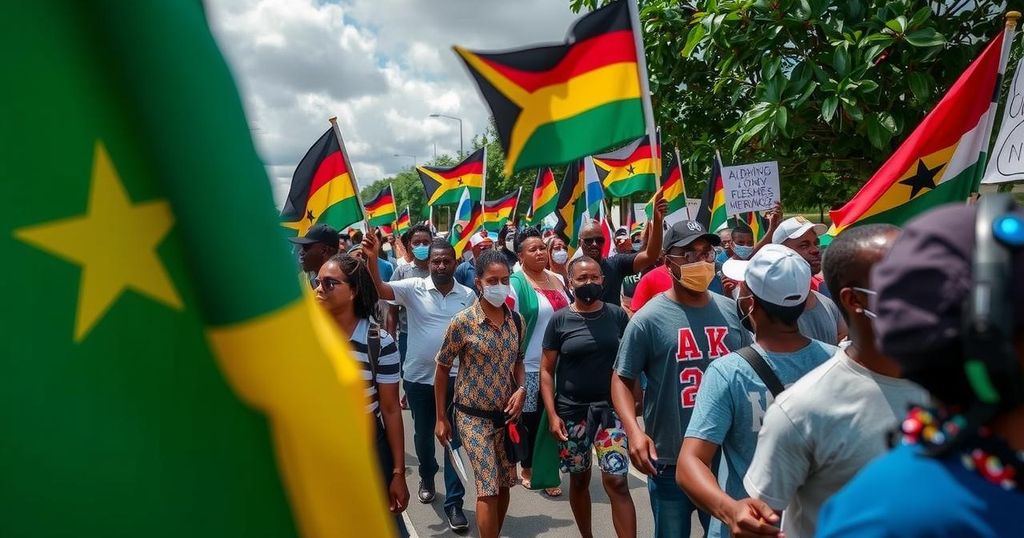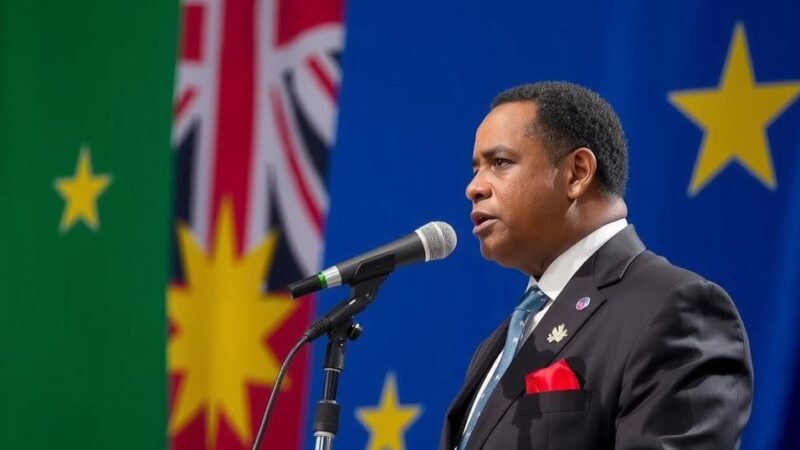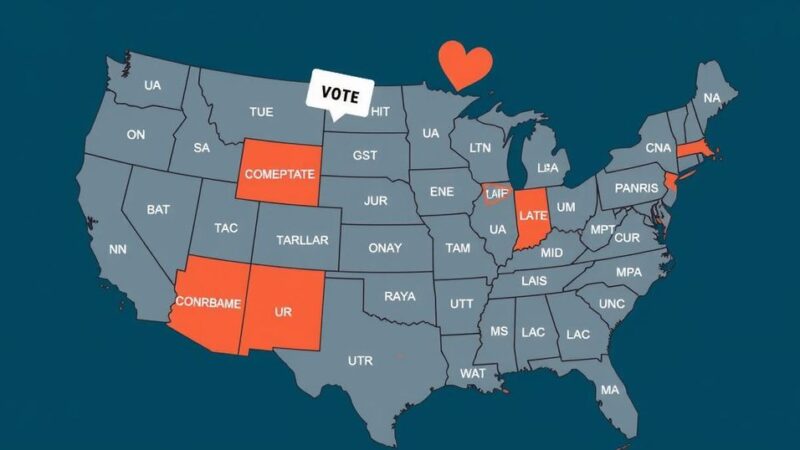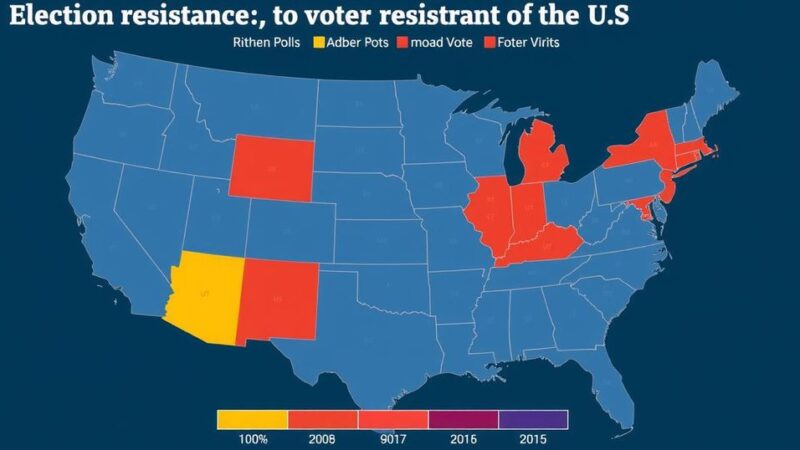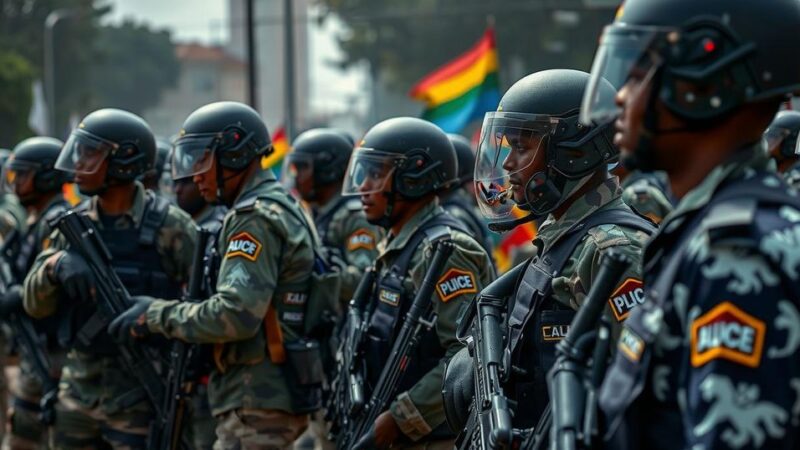IKSur urges the release of six men charged in the May 2023 riots in Suriname, which resulted from grievances against state treatment of indigenous peoples. The chairman of IKSUR emphasized historical discrimination and the government’s failure to uphold rights despite international rulings. The organization calls for justice, equal treatment in legal matters, and thorough investigations into police actions during the riots.
In a recent statement, the Indigenous Collective Suriname (IKSur) has called for the release of six individuals who have been implicated in the riots that occurred in Pikin Saron in May 2023. These individuals have been on trial, with a verdict anticipated shortly. The unrest began when armed assailants attacked a police station, resulting in the deaths of two men during a subsequent confrontation with law enforcement. The protesters purportedly acted due to grievances regarding the treatment of the indigenous community by the Surinamese government. IKSur’s chairman, Lloyd HF Read, highlighted systemic discrimination faced by indigenous peoples, which is rooted in historical injustices post-colonization and continues today through inadequate healthcare, education, and economic opportunities. Read pointed out that lands where indigenous peoples were relocated are now being exploited by multinationals, often linked to well-connected political figures. The situation escalated following the 2015 Kalina Lokono verdict, where the Inter-American Court of Human Rights condemned Suriname for failing to recognize the territorial rights of the Kalina and Lokono peoples. Despite this ruling, the government has reportedly disregarded its obligations, continuing practices of land exploitation. In response to the riots, IKSUR claims that the police’s actions, including the killing of two indigenous individuals, have yet to be thoroughly investigated. Calls for an independent forensic examination have been met with refusal, raising concerns about the treatment of the detained suspects. Amidst ongoing pre-trial detentions of the six suspects, lasting an unacceptable duration according to Inter-American Law, requests for provisional release continue to be denied. The IKSUR has criticized the government’s portrayal of the suspects as “terrorists” and emphasized the necessity for equal treatment and justice for indigenous communities. They have urged not only for fair hearings for the accused but also for community support in voicing their struggles against systemic injustices.
The situation in Suriname concerning the indigenous populace reflects longstanding tensions over land rights and governmental relations. Historical grievances stem from colonial-era displacement, which led to further marginalization and underdevelopment post-independence. With the recent events surrounding the riots at Pikin Saron, the focus has shifted to the state’s handling of indigenous rights as articulated through international rulings, specifically the Kalina Lokono case. These issues pose critical questions about the legal and social frameworks that govern the treatment of indigenous communities in Suriname and the implications of governmental neglect and exploitation of their resources.
In conclusion, the demands from IKSUR for the release of the six charged men underscore broader issues of discrimination and injustice faced by the indigenous peoples of Suriname. As the legal proceedings unfold, the spotlight remains on the government’s accountability in honoring indigenous rights and addressing historical wrongs. The call for an equitable justice system by the indigenous community highlights the urgent need for reflection and reform within Surinamese policies towards its marginalized groups.
Original Source: caribbean.loopnews.com
